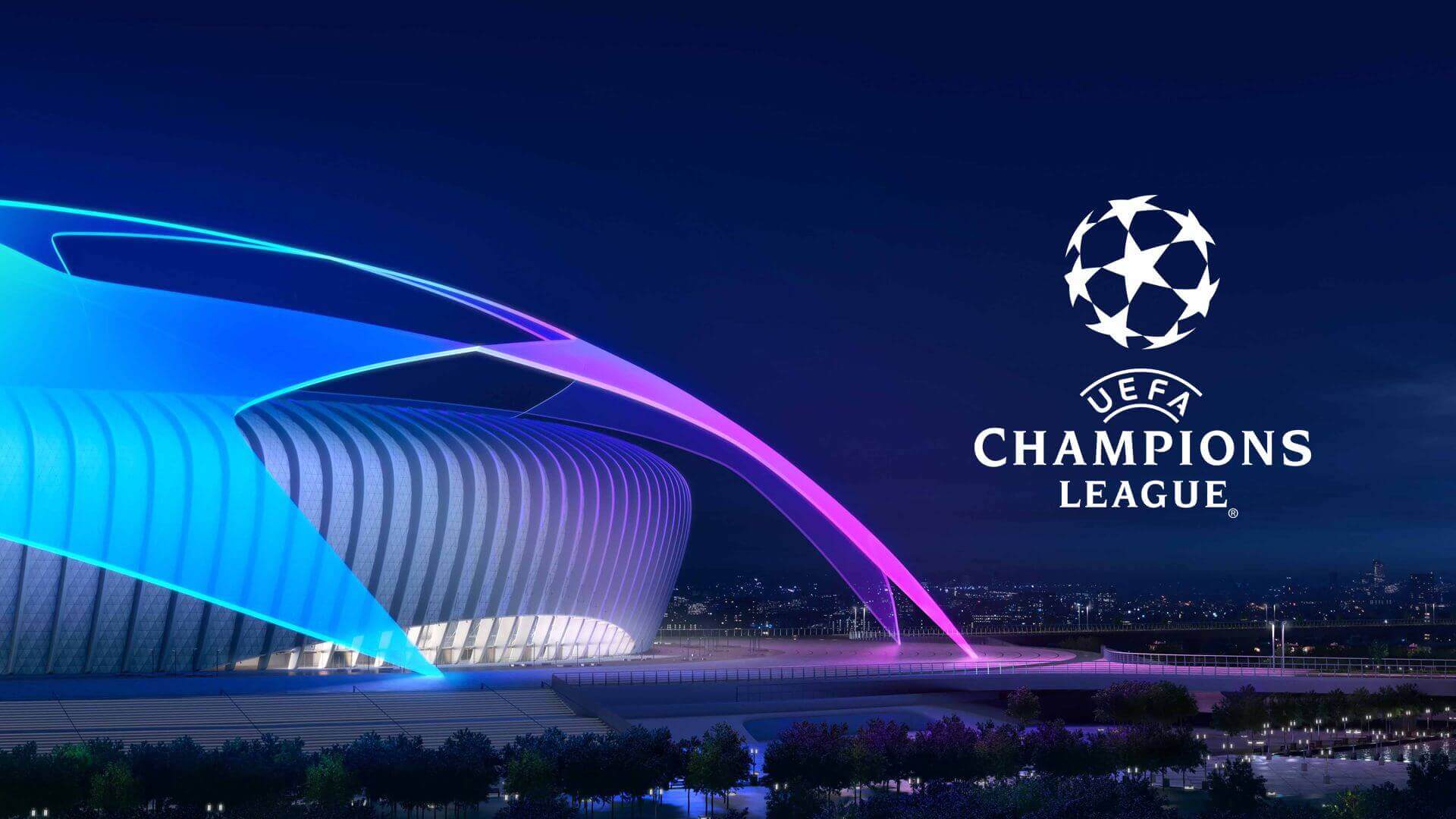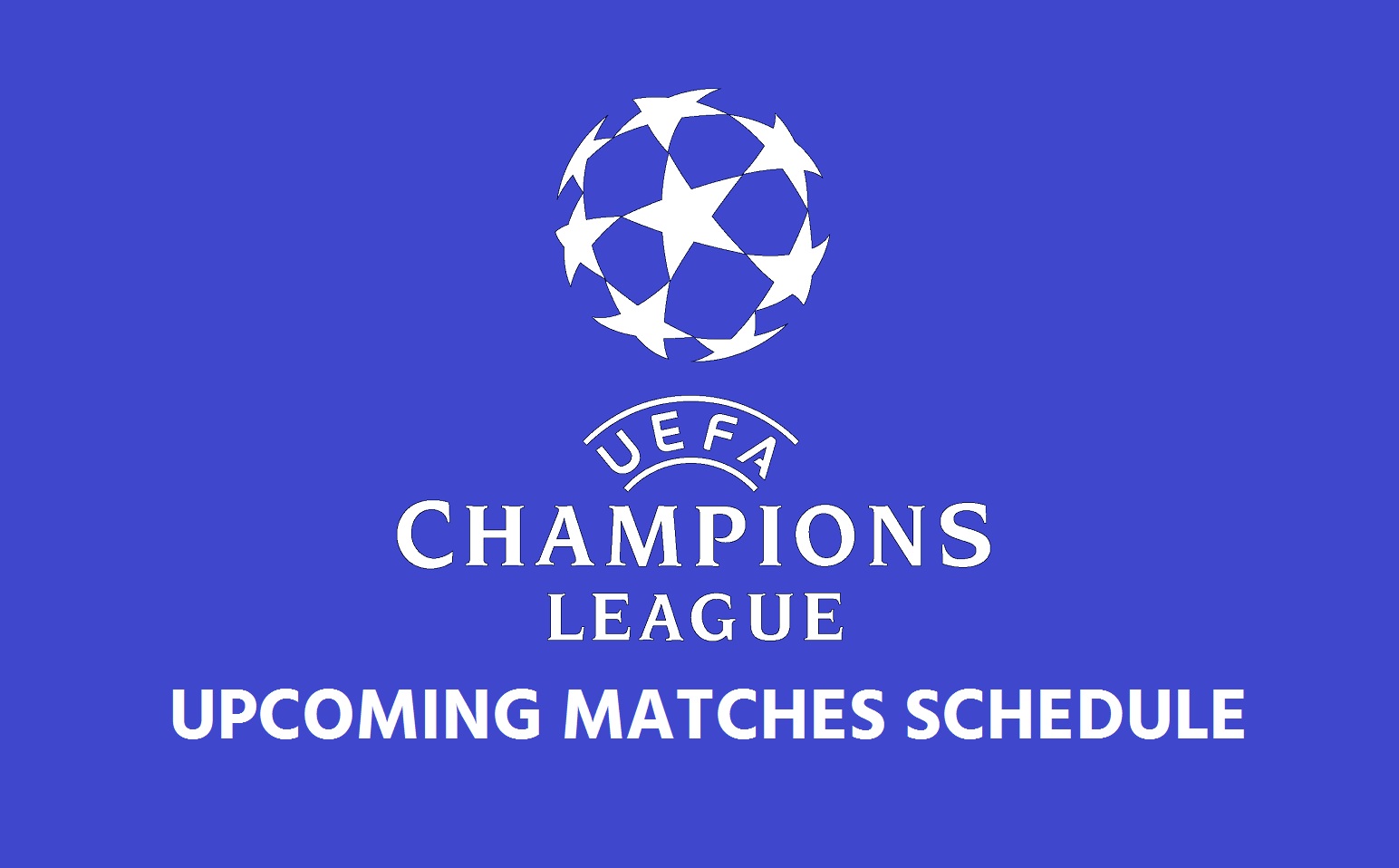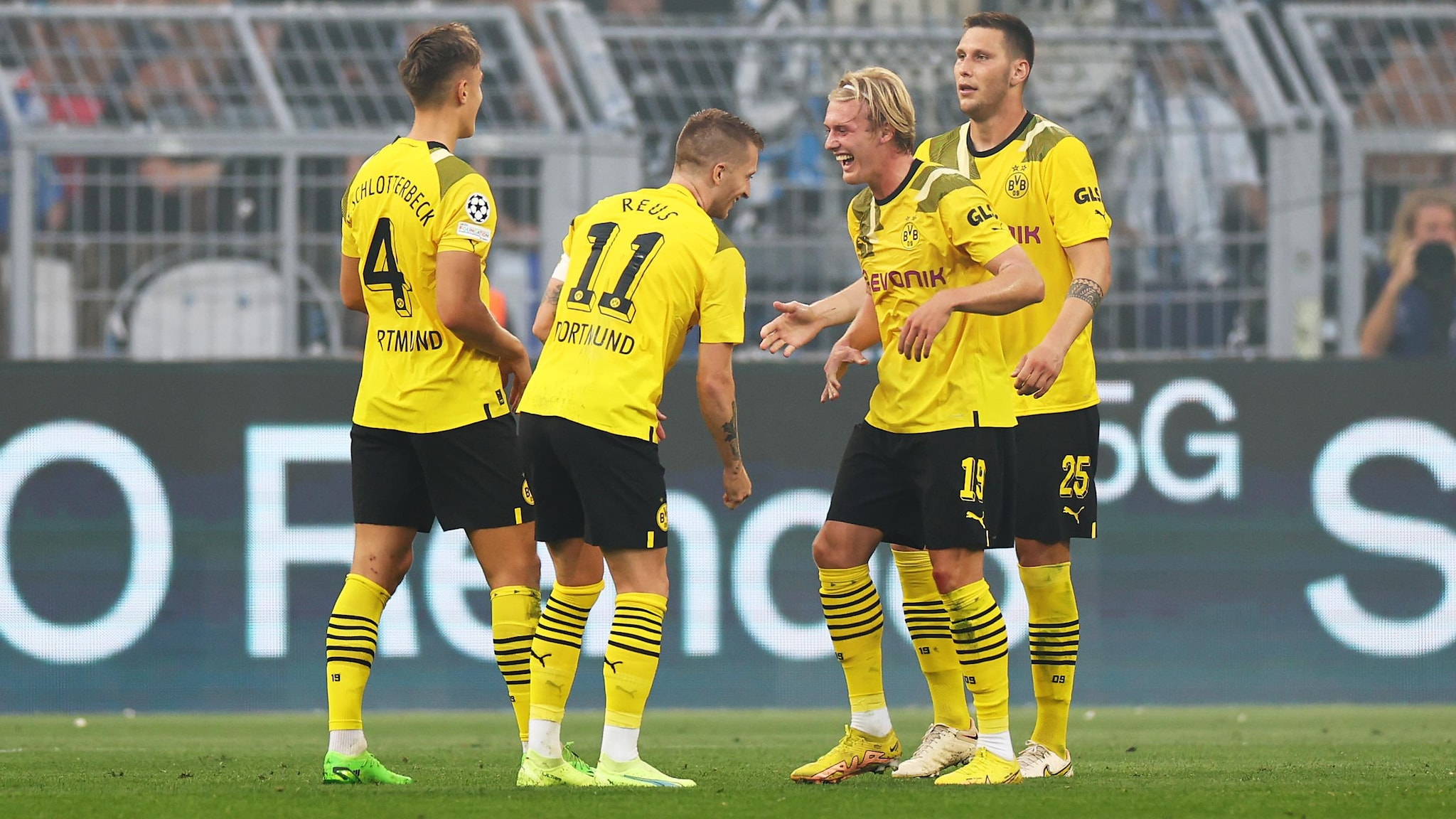Unveiling The Excitement Of UEFA Champions League Matches
Listen up, soccer fans! The UEFA Champions League is not just another tournament—it’s an adrenaline-pumping spectacle that brings the world together. Every year, millions of fans across the globe tune in to witness the magic unfold on the pitch. UEFA Champions League matches are more than just games; they’re a celebration of skill, passion, and determination. And let me tell you, there’s nothing quite like it. So buckle up, because we’re about to dive deep into what makes this tournament so special.
From the iconic anthem that gets your blood pumping to the jaw-dropping goals that leave you speechless, the UEFA Champions League is a feast for the senses. It’s where the best teams in Europe battle it out for glory, and where legends are made. Whether you’re a die-hard fan or just someone who loves a good game, this competition has something for everyone. Stick around, and I’ll break it all down for you!
Now, before we get into the nitty-gritty, let’s set the stage. The UEFA Champions League is more than just a tournament—it’s a cultural phenomenon. It’s where dreams are realized, rivalries are fueled, and records are broken. So, whether you’re here to relive the moments that made you jump out of your seat or to discover why everyone’s talking about it, you’re in the right place. Let’s get started!
Read also:Border Collie And Corgi Mix The Ultimate Guide To This Unique Hybrid Breed
What Makes UEFA Champions League Matches Unique?
Let’s be real—there’s something magical about the UEFA Champions League. It’s not just about the football; it’s the atmosphere, the history, and the sheer intensity of every match. Unlike regular league games, these matches feel bigger, more important, and more dramatic. Every game is a potential classic, and every moment could be a turning point. But what exactly sets UEFA Champions League matches apart?
First off, the level of competition is unmatched. You’re talking about the cream of the crop here—teams that have dominated their domestic leagues battling it out on the European stage. The stakes are higher, the pressure is real, and the quality of play is off the charts. Plus, there’s that iconic anthem that gets played before every game. You know the one—it gives you goosebumps every single time.
The History and Legacy of the Tournament
The UEFA Champions League has a rich history that dates back to 1955 when it was first known as the European Cup. Over the years, it has evolved into the behemoth we know today. From its humble beginnings to becoming the most prestigious club competition in the world, the tournament has seen it all. Legends like Cristiano Ronaldo, Lionel Messi, and Zinedine Zidane have graced its stages, leaving behind unforgettable moments.
And let’s not forget the famous trophies. The big ears trophy, as it’s affectionately known, is the ultimate prize for any club. Winning it means joining an elite club of champions who have etched their names in football history. It’s not just about lifting the trophy—it’s about the journey, the sacrifices, and the hard work that goes into getting there.
The Format of UEFA Champions League Matches
Alright, let’s talk about how the tournament works. The UEFA Champions League follows a specific format that ensures only the best teams make it to the final stages. It starts with a group stage where 32 teams are divided into eight groups of four. Each team plays every other team in their group twice—home and away. The top two teams from each group advance to the knockout stages.
Once you’re in the knockout rounds, it’s winner takes all. Each tie is played over two legs, with one game at each team’s home ground. The team that scores the most goals over the two legs progresses to the next round. It’s a tense, nail-biting affair that keeps fans on the edge of their seats. And let’s not forget about the away goals rule, which adds another layer of complexity.
Read also:Rory Gilmore Actress A Comprehensive Dive Into Her Life Career And Legacy
The Importance of Home and Away Legs
Speaking of away goals, they play a crucial role in determining the outcome of knockout ties. If the two teams are level on aggregate after the two legs, the team that scored more goals away from home advances. This rule adds an extra dimension to the games, as teams have to balance attacking and defending carefully. It’s a strategic game of chess, and every decision counts.
And then there’s the final—the ultimate showdown. Played at a neutral venue, it’s the culmination of months of hard work and dedication. The atmosphere is electric, the tension is palpable, and the stakes couldn’t be higher. It’s a day that every player dreams of, and for fans, it’s the pinnacle of the football calendar.
Iconic Moments in UEFA Champions League History
Let’s take a trip down memory lane and revisit some of the most iconic moments in UEFA Champions League history. There have been so many unforgettable games, goals, and saves that it’s hard to pick just a few. But here are some that stand out:
- The 1999 Final: Manchester United vs. Bayern Munich. Who can forget that dramatic comeback in injury time? Two goals in the final minute turned the game on its head, and the Red Devils walked away as champions.
- Liverpool’s Miracle in Istanbul: The 2005 final against AC Milan will go down in history as one of the greatest comebacks ever. Trailing 3-0 at halftime, Liverpool fought back to win on penalties.
- Ronaldo’s Hat-Trick Against Atletico Madrid: In the 2019 quarterfinals, Cristiano Ronaldo scored a stunning hat-trick to lead Juventus to victory. It was a masterclass in pure talent and determination.
These moments are etched in the memories of fans around the world, and they’re what make the UEFA Champions League so special. Every game has the potential to create a new legend, and that’s what keeps us coming back for more.
The Role of Players in Creating Magic
Of course, none of these moments would be possible without the players. They’re the ones on the pitch, giving it their all for 90 minutes or more. From the goalkeepers making incredible saves to the strikers scoring breathtaking goals, every player has a role to play. And when they come together as a team, magic happens.
But it’s not just about individual brilliance—it’s about teamwork, strategy, and execution. Coaches like Pep Guardiola, Zinedine Zidane, and Jurgen Klopp have all left their mark on the tournament, bringing their unique styles and philosophies to the game. Their influence is felt on and off the pitch, and they’re a big part of what makes the UEFA Champions League so exciting.
The Financial Impact of UEFA Champions League Matches
Let’s talk about the elephant in the room—the money. The UEFA Champions League is a massive financial operation, generating billions of euros every year. From TV rights to sponsorships and merchandise, the tournament is a goldmine for clubs and stakeholders alike. But what does this mean for the teams involved?
For starters, it provides a huge financial boost for clubs. The prize money for reaching the final stages is substantial, and it’s a lifeline for many teams. It allows them to invest in better infrastructure, hire top coaches, and attract world-class players. But it’s not just about the money—it’s about the prestige. Winning the UEFA Champions League is a badge of honor that boosts a club’s reputation and attracts top talent.
The Rise of Super Clubs
With the financial rewards on offer, it’s no surprise that we’ve seen the rise of super clubs in recent years. Teams like Manchester City, Paris Saint-Germain, and Bayern Munich have used their financial muscle to dominate the tournament. They’ve assembled star-studded squads and invested heavily in infrastructure, giving them a competitive edge.
But this has also sparked debates about the future of the tournament. Some argue that the balance of power is tipping too far in favor of the rich clubs, making it harder for smaller teams to compete. It’s a delicate balance that UEFA has to manage carefully to ensure the competition remains fair and exciting.
How Fans Experience UEFA Champions League Matches
Let’s not forget the fans—they’re the lifeblood of the tournament. Whether you’re watching from the stands or cheering on your team from home, the experience is second to none. The atmosphere at the stadiums is electric, with fans creating a sea of color and noise that can be heard for miles. It’s a sensory overload that you have to experience to truly understand.
And for those watching at home, the experience is just as thrilling. With live broadcasts available in almost every corner of the world, fans can tune in and feel like they’re part of the action. The commentary, the analysis, and the post-match interviews all add to the excitement, making it a multi-dimensional experience.
The Role of Social Media
Social media has also played a huge role in how fans engage with the tournament. Platforms like Twitter, Instagram, and TikTok are buzzing with content before, during, and after every game. Fans share their thoughts, predictions, and reactions in real-time, creating a global conversation that extends beyond the pitch. It’s a new era of fandom, and the UEFA Champions League is at the forefront of it.
And let’s not forget about the fan zones. Many cities host official fan zones where fans can gather to watch the games together. It’s a great way to meet fellow supporters, share in the excitement, and create lasting memories. Whether you’re a local or a tourist, these fan zones offer a unique way to experience the tournament.
Challenges Facing the UEFA Champions League
While the UEFA Champions League is undoubtedly the jewel in the crown of club football, it’s not without its challenges. From financial disparities to scheduling conflicts, there are several issues that need to be addressed to ensure the tournament remains fair and competitive.
One of the biggest challenges is maintaining a level playing field. As mentioned earlier, the rise of super clubs has created a gap between the haves and the have-nots. This can make it harder for smaller teams to compete, which could affect the tournament’s long-term sustainability. UEFA needs to find ways to bridge this gap and ensure that every team has a fair chance to succeed.
The Future of the Tournament
Looking ahead, the future of the UEFA Champions League is both exciting and uncertain. With changes in the global football landscape, UEFA has to adapt to stay relevant. This could mean expanding the tournament, introducing new formats, or even exploring new markets. Whatever the future holds, one thing is certain—the UEFA Champions League will continue to be a source of excitement and inspiration for fans around the world.
And let’s not forget about the impact of technology. From VAR to advanced analytics, technology is changing the way the game is played and watched. It’s a double-edged sword, as it can enhance the experience but also take away from the human element. Finding the right balance will be key to ensuring the tournament remains true to its roots while embracing the future.
Conclusion: Why UEFA Champions League Matches Matter
So there you have it—a deep dive into what makes UEFA Champions League matches so special. From the history and legacy to the financial impact and fan experience, this tournament touches every aspect of the beautiful game. It’s more than just football—it’s a celebration of passion, skill, and determination.
As we’ve seen, the UEFA Champions League is not without its challenges, but it’s also full of opportunities. The future is bright, and there’s no doubt that this tournament will continue to captivate audiences for years to come. So, whether you’re a lifelong fan or a newcomer to the sport, there’s always something to look forward to.
Now it’s your turn! Share your thoughts, favorite moments, or predictions in the comments below. And if you enjoyed this article, don’t forget to share it with your friends and family. Together, let’s keep the conversation going and celebrate the magic of the UEFA Champions League!


